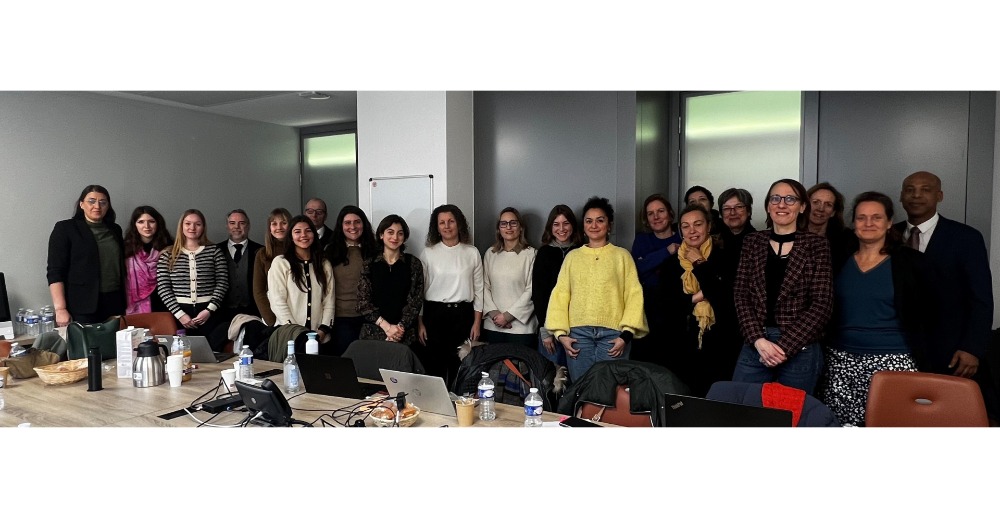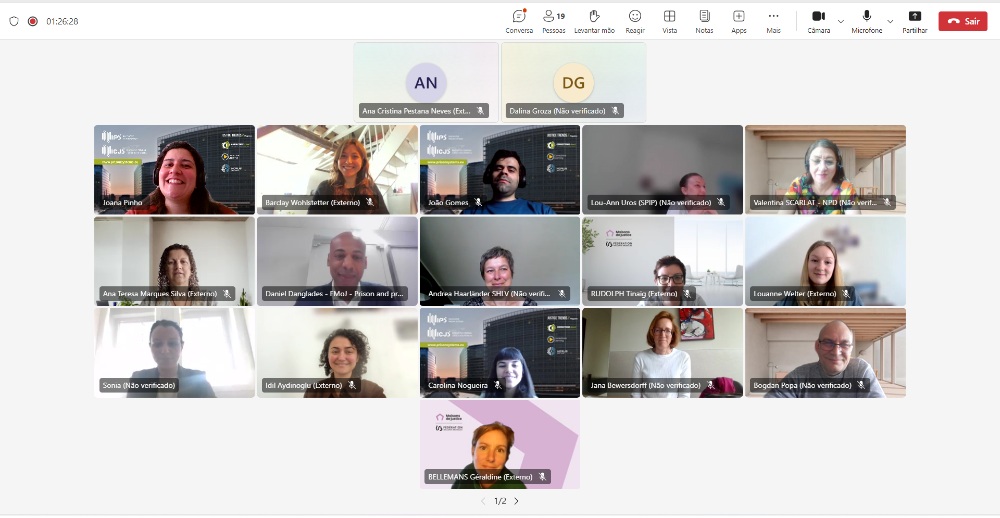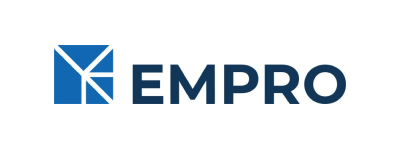IPS_Innovative Prison Systems is partnering in a new European initiative aimed at ensuring that justice and rehabilitation practices are equitable, effective, and respectful of fundamental rights.
“Every citizen of the Union has the right to move and reside freely within the territory of the Member States” [Article 45 of the EU Charter of Fundamental Rights (CFR)].
While this fundamental right brings undeniable benefits, freedom of movement has also contributed to an increase in individuals being tried and convicted outside their country of origin or habitual residence. According to the 2022 SPACE I and II reports, 8% of probationers in European are foreigners, a figure that rises to 16% when referring to incarcerated individuals (Aebi, & Hashimoto, 2022).
Overview of Framework Decisions 2008/947 and 2009/829
Framework Decision 2008/947 (FD) establishes the mutual recognition of judgments and probation decisions, and FD 2009/829 applies the same principle to supervision measures as an alternative to pre-trial detention. Both instruments were designed to improve cooperation and trust among EU Member States.
These instruments seek to promote a more humane and dignified rehabilitation process for foreign accused or convicted individuals (PONT Project, 2020), while encouraging the use of alternative sanctions over custodial measures. This is particularly relevant for foreign nationals, who are disproportionately subjected to imprisonment (Martufi & Peristeridou, 2022).
However, the implementation of FDs 2008/947 and 2009/829 has been inconsistent, limiting their effectiveness in promoting non-custodial alternatives. As a result, their potential to strengthen cross-border cooperation and create a fairer, more efficient justice system in the EU has yet to be fully realised.
The 2023 final report on the 9th round of mutual evaluations of Mutual Recognition legal instruments in the field of deprivation or restriction of liberty highlights a “significant lack of application” of FDs 2008/947/JHA and 2009/829/JHA (Council of the EU, 2023). This limited use of these instruments has important implications, particularly regarding the rights to non-discrimination (Articles 20 and 21 CFR), a fair trial (Article 47 CFR), the presumption of innocence (Article 48 CFR), and the principles of legality and proportionality (Article 49 CFR).
EMPRO – Raising awareness and improving the application of FDs 2008/947 and 2009/829
IPS-partnered initiative EMPRO “Empowerment of the Framework Decisions 2008/947 and 2009/829 through EU Probation Services” seeks to ensure a more frequent and prompt use of pre- and post-trial alternatives to detention, while also promoting stronger and more effective communication between EU Member States.

To this end, the Consortium aims to establish the groundwork for supporting probation officers and other justice professionals (namely judges, prosecutors, lawyers and prison staff) in the more frequent and efficient use of FD 2008/947 and FD 2009/829, advocating for probationary solutions and alternatives to custodial measures. It also seeks to promote the implementation of these FDs through the use of existing and future digital tools, contributing to more effective cooperation between authorities in full compliance with Directive 2023/2843 and Regulation 2023/2844. Additionally, the Consortium aims to foster knowledge sharing amongst professionals in a (trans)national context to enhance cooperation and mutual trust. Finally, it is committed to advocating for the human and fundamental rights enshrined in the CFR and the European Convention on Human Rights, aiming for a more humane and efficient rehabilitation process, particularly for foreign nationals during the pre-and post-trial phases.
To achieve these goals, the EMPRO project will provide comprehensive hybrid training on the practical application of both FDs and the use of existing and upcoming digital tools to help professionals streamline the application of these instruments. The project will also produce informative materials, and organise several national and international events to raise awareness, foster mutual learning, facilitate the exchange of experiences among justice professionals, and promote cooperation between Member States.

As a key partner in the project, IPS will contribute to help justice professionals fully understand and navigate the operational challenges in effectively applying these instruments and improving cooperation between authorities. This will be achieved through the delivery of training materials, the creation of a stakeholder database, and support for national and international events.
IPS’ involvement reflects its expertise in judicial cooperation in criminal matters and in developing awareness-raising and training resources. IPS is leading the B-learning course task and is responsible for developing, piloting, disseminating, finetuning, and implementing the E-learning course.
Learn more about this project

EMPRO
Empowerment of the Framework Decisions 2008/947 and 2009/829 through EU Probation Services
The consortium implementing this European initiative is led by the France Ministry of Justice (France) and is partnered by IPS_Innovative Prison Systems (Portugal), the Penal Reform International (Netherlands), the General Administration of the Houses of Justice (Belgium), the Schleswig-Holstein Association for Social Responsibility in Criminal Justice, Probation and Victim Support (Germany), the General Directorate of Reinsertion and Prison Services (Portugal), the National Probation Directorate (Romania) and the House of Justice of the Ministry of the German-speaking community (Belgium).
The project also involves the Confederation of European Probation (Netherlands), the Dutch Probation Service (Netherlands), the Academy European Law (Germany), the National School of Penitentiary Administration (France), the Bremen Ministry of Justice and Constitutional Affairs (Germany) and the Schleswig–Holstei Ministry of Justice (Schleswig-Holst) (Germany) as associate partners.
To learn more about the EMPRO project please visit its project page.
Related projects

SafeBorders
Strengthening Judicial expertise and Frontline support to combat Child Trafficking

REUNION
Rehabilitation of foreign inmates within the scope of FD 2008/909/JHA

PRE-TRIAD
Alternative pre-trial detention measures: Judicial awareness and cooperation towards the realisation of common standards

PRE-RIGHTS
Assessing the impact and performance of preventive measures on EU Directives and Framework Decisions

NO-OBLIVION
Promoting Universal Jurisdiction while Evoking the Crimes Committed within the Former Yugoslavia

MIRAD
Multi-Ideological Radicalisation Assessment towards Disengagement

JCAP
Judicial cooperation for the enhancement of mutual recognition regarding probation measures and alternative sanctions

J-CAP Next
Judicial cooperation for the enhancement of mutual recognition regarding probation measures and alternative sanctions – EPP software 3.0
Related news

New database supports judicial practitioners apply fairer pre-trial supervision in EU cross-border cases
Read More »



